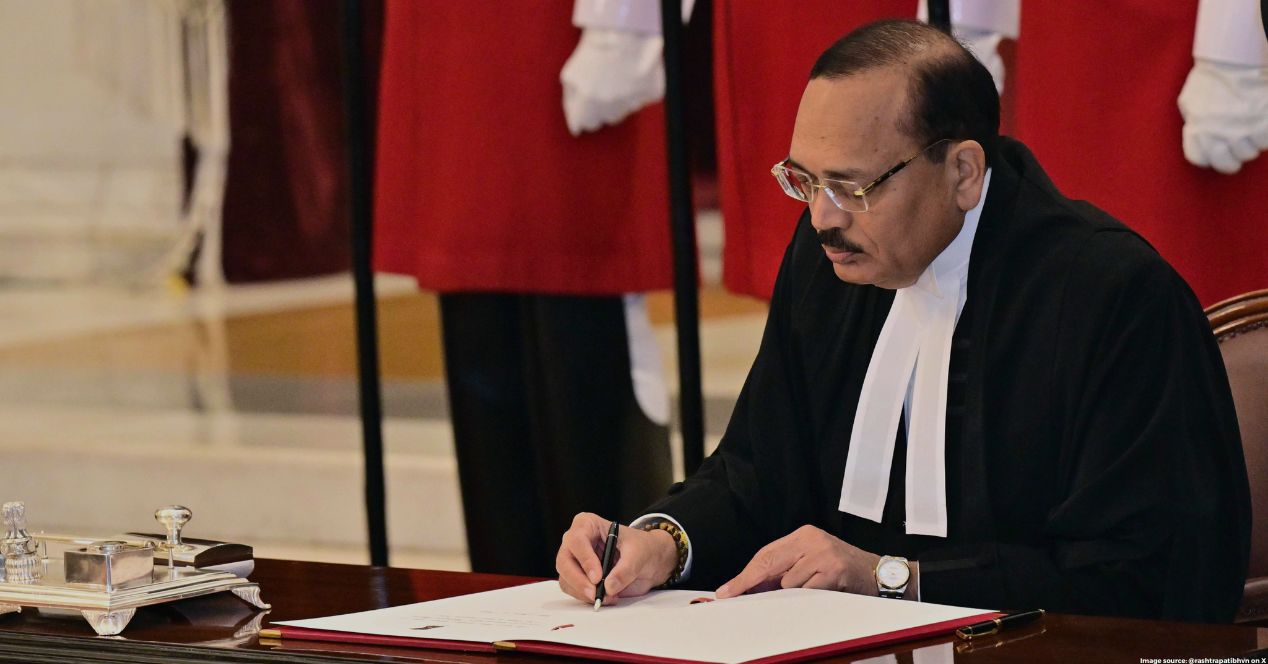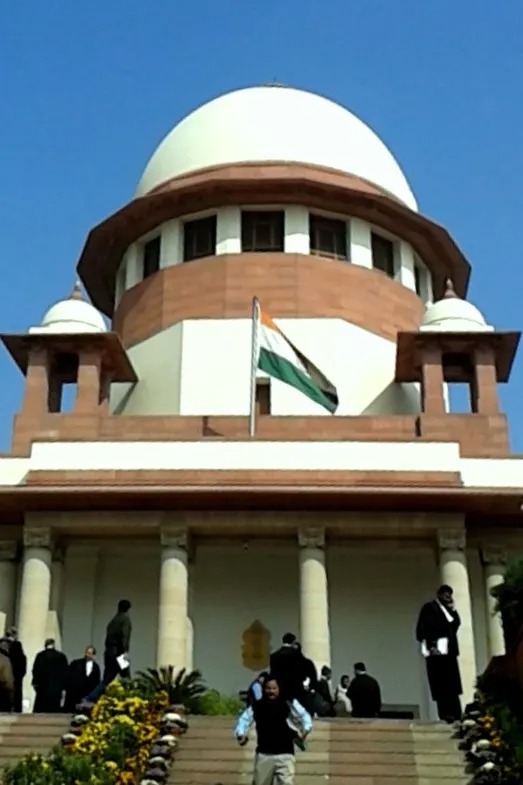1. The matter has been heard via video conferencing due to circumstances prevailing on account of the COVID-19 pandemic.
2. After the Court had heard at length Ms. Sugandha, learned counsel on behalf of the petitioner, Mr. Daya Shanker Prasad, learned counsel prayed
for allowing him to assist. Thus, the Court has also heard him. Ms. Indu Kumari Srivastava, learned Additional Public Prosecutor (hereinafter referred
to as the ‘APP’) for the State and Mr. Nityanand Mishra, learned counsel for the opposite party no. 2, have also been heard.
3. The petitioner apprehends arrest in connection with Complaint Case No. 869(C) of 2013 dated 05.08.2013, instituted under Sections 498A of the
Indian Penal Code and 4 of the Dowry Prohibition Act, 1961.
4. The opposite party no. 2 had filed the complaint case alleging that after marriage on 29.06.2012, the petitioner and his family members started
demanding dowry of Rs. 3 lakhs and were not ready to take her to the matrimonial home, but with the intervention of near relatives, she was taken to
the Sasural on the next day of the marriage and lived there for three days, but then the torture started by the petitioner and his family members for
dowry due to which her father had to take her to his house. It has further been alleged that the petitioner came to her house on 03.09.2012 and took
her back to the matrimonial home assuring that he would keep her well but again he and his family members started demanding Rs. 3 lakhs and also
torturing her. It is alleged that when the opposite party no. 2 informed her father, he tried to resolve the issue but nothing fruitful resulted and on
05.09.2012, she was again ousted from her matrimonial home and came to her father’s house. However, it has been stated that on 30.12.2012, the
petitioner took her to the matrimonial home but again she was ousted. Finally, it has been stated that on 21.07.2013, the opposite party no. 2 went to
the matrimonial home with her mother but the matter was not resolved and, thus, she had informed the Dumraon PS about the position and there she
was advised to file a complaint case.
5. Learned counsel for the petitioner submitted that the allegation is totally false and fabricated. It was submitted that right from the very beginning,
the opposite party no. 2, was not ready to live in the matrimonial home as she was having a job and wanted the petitioner to come Dumraon where she
was working and live there, which the petitioner could not have done as he was living in Patna and after marriage, the opposite party no. 2 was to
relocate and live with the petitioner at Patna. Learned counsel submitted that to a petition was filed before the Superintendent of Police, Buxar under
the RTI Act, 2005, with regard to the opposite party no. 2 performing second marriage, the information supplied was that she had married one
Dhanjee Shah in Buxar district itself on 12.04.2018 from which she also has a female child. It was, thus, submitted that the opposite party no. 2 in fact
has committed offence by such act. Learned counsel submitted that the petitioner is still ready to keep the opposite party no. 2 with him. It was further
submitted that the family members of the petitioner surrendered before the learned SDJM, Buxar on 26.09.2019 and were granted bail. It was
submitted that the Matrimonial Dispute Case No. 231 of 2015, filed by the opposite party no. 2, has also been dismissed by the Principal Judge, Family
Court, Buxar by order dated 07.11.2020.
6. To the query of the Court as to how the submissions made on behalf of learned counsel for the petitioner have relevance in the present case as
admittedly the marriage took place in the year 2012 and the complaint case is of the year 2013 and the divorce case filed by the opposite party no. 2
was of the year 2015 and even if it is assumed that the opposite party no. 2 had remarried, the same was only in the year 2018 and in that view of the
matter, subsequent developments would not be of much relevance in the factual matrix of the present case, learned counsel for the petitioner could not
assist the Court. On a further query of the Court on the conduct of the petitioner, when the specific stand is that right from the beginning, the opposite
party no. 2 was not ready to live in the matrimonial home and despite the petitioner repeatedly trying to take her to the matrimonial home she had
refused, why he had not made any attempt for settlement of the matter, especially by moving the Court under Section 9 of the Hindu Marriage Act,
seeking restitution of conjugal rights, if he really intended that the opposite party no. 2 should come back to the matrimonial home; again learned
counsel for the petitioner could not give any reply. The Court also wanted to be assisted by learned counsel for the petitioner as to why, while
deposing before the Principal Judge, Family Court in the divorce case, he had accepted that he had signed the petition for mutual divorce but he had
gone on to add that his consent was forcefully taken as he did not want to do that, while in the same breath, he has admitted that he had not given any
information anywhere with regard to his consent being taken forcibly; once again, learned counsel had no answer.
7. Learned APP and learned counsel for the opposite party no. 2 submitted that the conduct of the petitioner itself speaks volumes and that he and his
family members have always harassed the opposite party no. 2 and that he has also played with Courts’ proceeding by first filing a petition for
mutual divorce and then during deposition before the Court taking the stand that his consent was forcibly taken while also admitting that he had not
informed anybody with regard to such fact.
8. At this stage, the Court deems it appropriate to refer to the conduct of the petitioner which is reflected from the statement made in the main
application itself at paragraph no. 8, which reads as under:
“8. That it is stated that vide order dated 16.4.2014 cognizance has been taken against this petitioner and others only u/s 498A of the IPC and
Section 4 of the D.P. Act but due to filing of Matrimonial case u/s 13B of the Hindu Marriage Act, 1955 the petitioner has not moved for grant of
Anticipatory bail. It is relevant of state here that up till now no further process has been issued against this petitioner.â€
9. The Court would pause here to notice that the deponent has made such statement on oath on 26.11.2019 and if the petitioner was well aware of the
opposite party no. 2 having married in the year 2018 and also being blessed with a child, then the Court fails to understand that as to how he had taken
a stand that he was ready to keep the opposite party no. 2 with him. Further, from the statement at paragraph no. 8, it is clear that the petitioner had
readily agreed to mutual divorce, for in the aforesaid paragraph no. 8, quoted above, a statement has been made that because the matrimonial case
had been filed under Section 13B of the Hindu Marriage Act, 1955, the petitioner had not moved earlier for grant of anticipatory bail, which leaves no
doubt in the mind of the Court that the petitioner had deliberately and willingly agreed to such divorce and that is why he did not feel the necessity to
seek anticipatory bail. Thus, the U-turn by the petitioner before the Principal Judge, Family Court, Buxar does not indicate bona fide on the part of the
petitioner. Moreover, in the supplementary affidavit filed on behalf of the petitioner in which the order of the learned SDJM, Buxar dated 26.09.2019,
has been brought on record while granting bail to the other family members of the petitioner, it has been observed that those petitioners were enlarged
on bail on 23.07.2015 by the Court and because they had not appeared, their bail bonds were cancelled and non-bailable warrant was issued on
28.03.2019. However, accepting the plea that due to insufficient pairvy by the learned counsel, they could not appear and, the Court had enlarged
them on bail. However, the observation that the complainant is absent for a long time and not taking interest is not of much significance in the sense
that the Court also notes in the same line that the record is pending for appearance of one accused i.e., the petitioner. Thus, the petitioner not
appearing before the Court despite the other family members appearing, cannot take advantage of the matter either pending for long or the opposite
party no. 2 not appearing, as only for the petitioner’s appearance, the case was pending and only when the opposite party no. 2 started pursuing
the case, the petitioner woke up, despite his prayer for anticipatory bail having been rejected by the Court below on 05.08.2015 itself.
10. In view of the discussions made hereinabove, the Court is not inclined to grant pre-arrest bail to the petitioner.
11. Accordingly, the application stands dismissed.
12. Before parting, the Court would indicate that any observation made in this order was only for the purposes of taking a view with regard to prayer
for pre-arrest bail of the petitioner and shall not prejudice any party in any pending proceedings.

